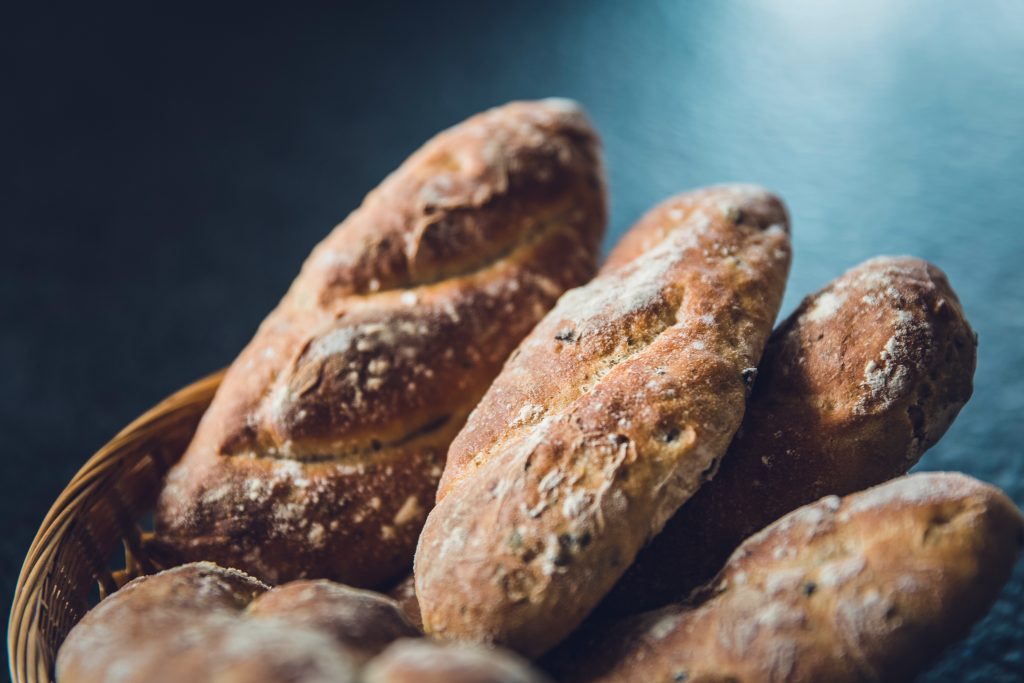Scarcity. Shortly before I was born, my parents experienced it at the gas pump as the Middle East oil supply plummeted. Long lines of cars circled gas stations as drivers hoped to get a few gallons before the tanks ran dry.
Growing up, the only scarcity I recall was the lack of milk and bread on the shelves in an Alabama grocery store the day before a snow storm.
Now, the closest I get to scarcity is when the last homemade pumpkin chocolate chip muffin disappears from the freezer. My children whine and ask me to make more as if we have no other viable breakfast options. Meanwhile, I pour them a bowl of cereal or pop a slice of bread in the toaster.
Economic scarcity has been, well, scarce in my life. And yet, I recently realized that I have been operating with a scarcity mindset for the past six years. It took a familiar story in a children’s Bible to help me see the truth and reframe my situation.
Seeing Scarcity
After a long day of teaching a crowd, Jesus saw that the people were hungry. The disciples asked Jesus to send the people elsewhere to find a meal, but Jesus instead asked the disciples to give them something to eat. It would cost too much, the disciples complained.
Jesus then asked them to inventory the amount of food among the crowd. The God’s Story for Me Bible Storybook tells what happened next:
…Andrew brought a little boy to Jesus. He said, “Jesus, this little boy has five loaves of bread. He has two little fishes. How can such a little lunch feed so MANY hungry people?”
Andrew saw five loaves and two fish and calculated impossibility.
Scarcity is an economic term describing the situation in which the demand for a resource, good, or service outpaces the supply. In this familiar Bible story, the demand for food was high; the supply was too low. Five loaves and two fish would never be enough to feed 5,000 people. Scarcity.
Experiencing Abundance
Where Andrew saw scarcity, Jesus saw more than enough. The story continues,
The little boy gave Jesus his lunch. Jesus smiled and said, “Thank you!”
Then Jesus said, “Have everyone sit on the grass.” He thanked God for the little lunch.
And then Jesus broke the bread and the fish and gave the pieces to the disciples who, in turn, gave them to the people. John’s Gospel records that the disciples picked up seven basketfuls of leftovers (John 13:37). Out of five loaves and two fish–a little lunch–, Jesus provided more than enough. Abundance.
From Scarcity Mindset
This familiar story told in simple words revealed my scarcity mindset. Instead of five loaves and two fish, I had fifteen hours. Instead of 5,000 people, I had curriculum to develop, classes to teach, research to analyze, proposals to write, papers to finish, workshops to lead, books to read, social media posts to schedule, articles to create. How could I do so much in so little time?
Since my first son was born, I have set aside about twelve to fifteen hours per week for professional work. That time is a gift, but it is also a precious resource. I complain when I lose my work time. I feel defeated by the amount of work I have and want to do. Under a scarcity mindset, I tend to clutch my time tightly instead of offering it to Jesus as the little boy generously offered his little lunch.
To Abundance Mindset
This familiar story told in simple words reminded me that we serve a God of abundance, or super-abundance as scholar Walter Brueggemann would say. When we offer Jesus our little, he has the power to create much.
The children’s Bible helps us imagine Jesus’ response to the little boy who offered Jesus his little lunch. Neither Matthew or John describe their interaction. But I think the idea of Jesus delighting in a child offering him all that he has is consistent with the picture of Jesus we see in Scripture.
I imagine Jesus saying to me, “O ye of little bread, bring your little lunch to me and watch what I will do.”
So this week, I am trying to offer my time to Jesus. In a prayer of few words, I offer up my plans, my dreams, and my fifteen hours and ask him to make the impossible possible. For he is the one who is able to do immeasurably more, abundantly more, than all we ask or imagine (Eph 3:20).
